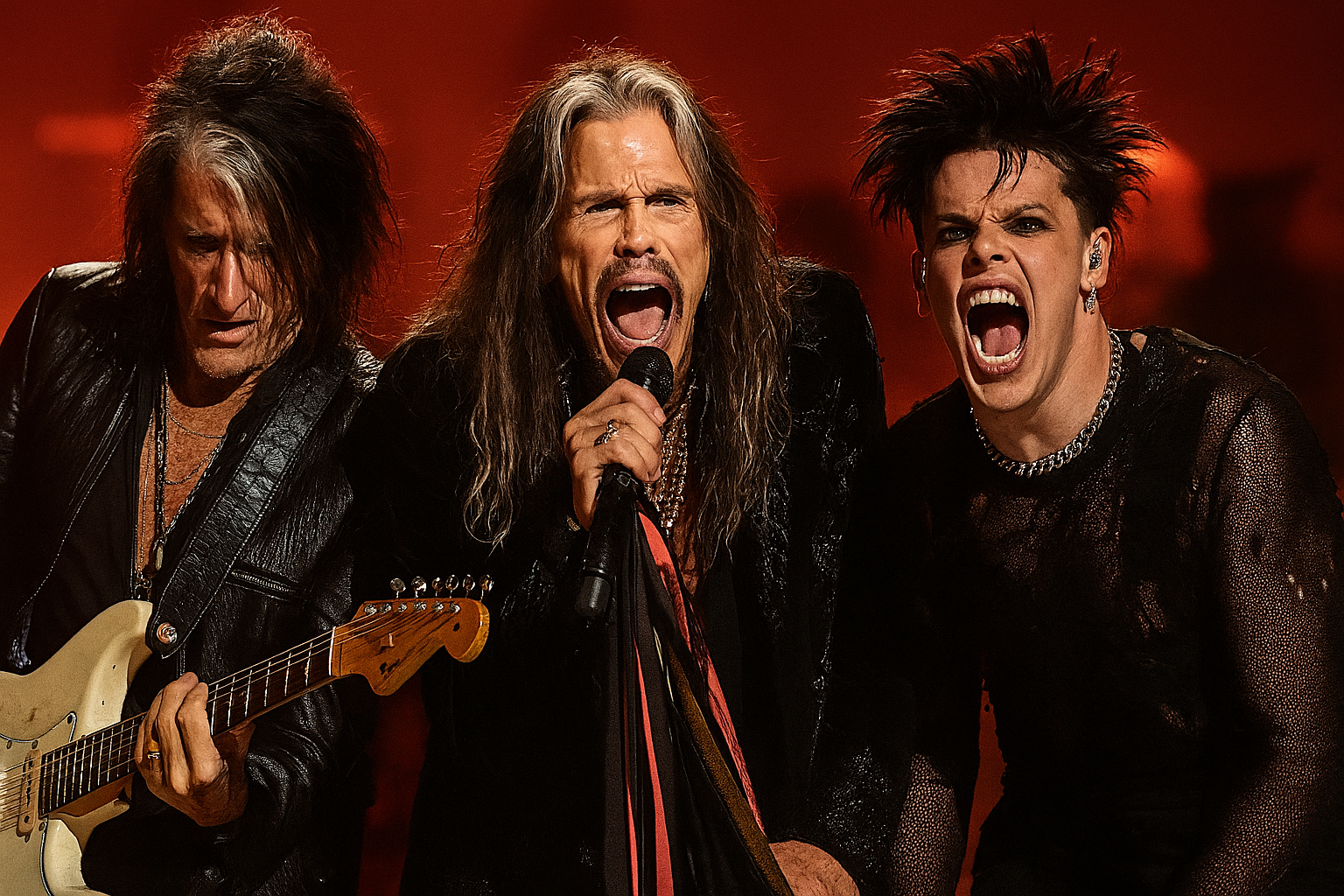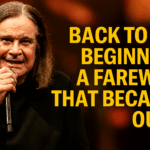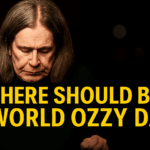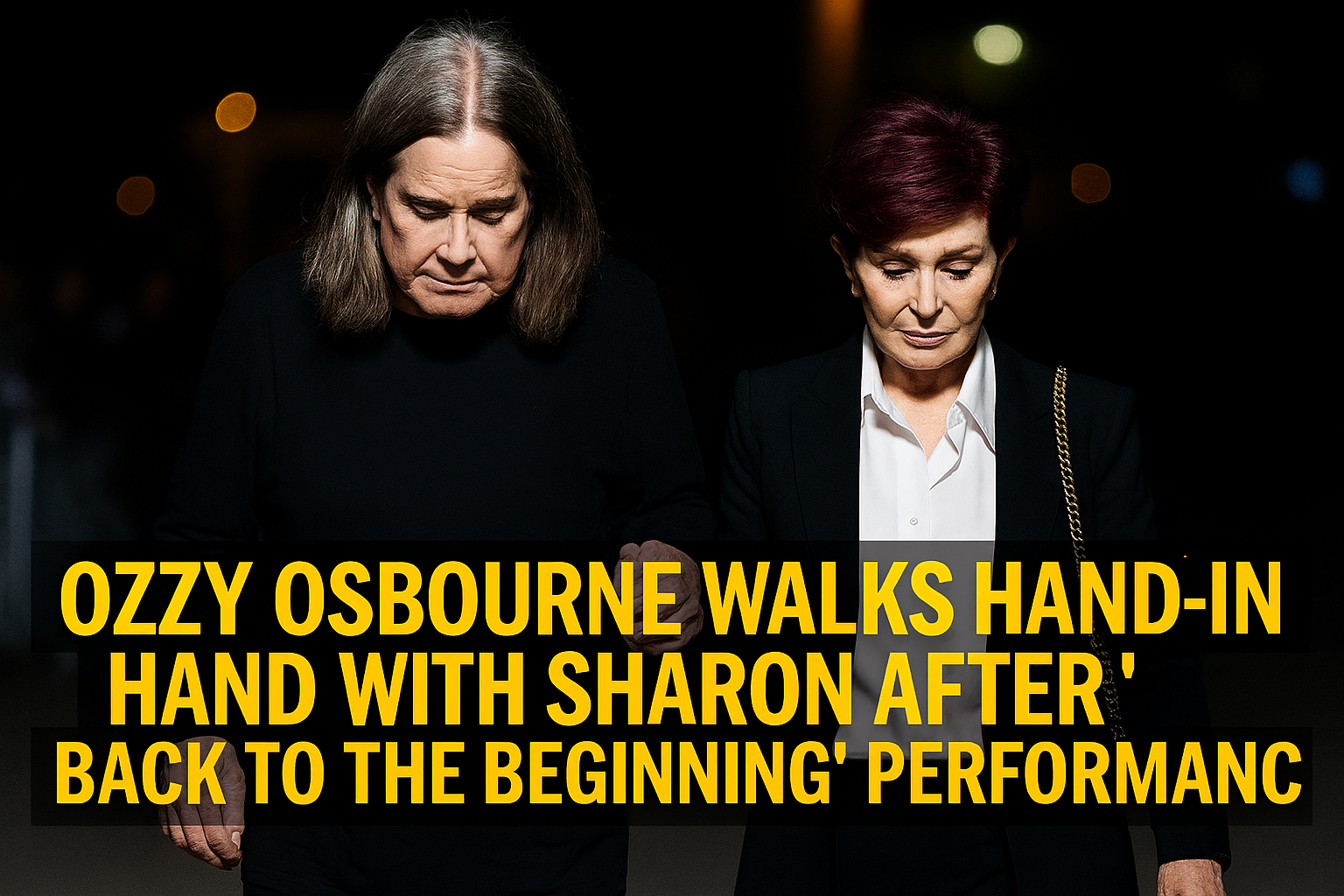Steven Tyler’s Triumphant Return Ignites the 2025 VMAs
A few years ago, Steven Tyler faced what many feared would be the final curtain call of his legendary career. After decades of electrifying performances and iconic vocals, the Aerosmith frontman suffered a devastating injury—he broke his voice box. The damage was severe enough to force him to cancel his farewell tour and retreat from the stage, leaving fans heartbroken and uncertain if they’d ever hear his signature scream again.
But at the 2025 MTV Video Music Awards, Tyler shattered expectations with a comeback that was nothing short of seismic. In a moment that instantly etched itself into music history, the rock icon returned to the spotlight in a blazing tribute to fellow legend Ozzy Osbourne. It wasn’t just a nostalgic nod—it was a full-throttle, cross-generational explosion of sound and spirit.
Sharing the stage with longtime bandmate Joe Perry, British punk provocateur Yungblud, and guitar virtuoso Nuno Bettencourt, Tyler helped deliver a thunderous medley of Osbourne’s classics: “Crazy Train,” “Changes,” and “Mama, I’m Coming Home.” Each track was reimagined with reverence and fire, blending old-school grit with modern edge. The performance was a masterclass in musical fusion—where legacy met rebellion, and tradition collided with innovation.
Tyler, now approaching 80, stunned the crowd with vocals that defied age and injury. His voice, once feared lost, roared back with raw power and emotional depth. It wasn’t just a return—it was a resurrection. Perry’s bluesy riffs anchored the chaos, while Yungblud injected reckless energy, leaping across the stage like a man possessed. Bettencourt’s guitar work was surgical and soaring, slicing through the mix with precision and flair.
The chemistry among the four was electric. It wasn’t a handoff between generations—it was a collision. Tyler and Yungblud traded verses like dueling spirits, one forged in the fire of ’70s rock excess, the other born of Gen Z rebellion. Bettencourt’s solos lit up the arena, while Perry’s steady presence grounded the spectacle in classic rock authenticity.
The tribute wasn’t just a celebration of Ozzy—it was a celebration of survival, legacy, and the unkillable spirit of rock and roll. Tyler’s return, in particular, carried the weight of a man who had stared down silence and chosen to scream back. His performance was a defiant reminder that legends don’t fade—they flare.
Fans and critics alike were floored. Social media erupted in real time, with hashtags like #TylerReturns, #OzzyTribute, and #VMAs2025 trending worldwide. Within hours, the performance was being hailed as the greatest tribute in decades. For many, it was the most electrifying VMAs moment in 25 years—a rare instance when the show’s chaotic energy aligned with genuine musical transcendence.
In an era where award shows often chase virality over substance, this performance cut through the noise. It wasn’t about gimmicks or controversy—it was about music, legacy, and the raw thrill of live performance. It reminded audiences why these artists matter, and why their songs still echo across generations.
Ozzy Osbourne, watching from the audience with tears in his eyes, stood and applauded as the final notes rang out. The tribute wasn’t just a performance—it was a love letter to his legacy, delivered by artists who understood the weight of his influence. Tyler’s rendition of “Mama, I’m Coming Home” was especially poignant, his voice trembling with emotion as he sang the lyrics like a personal anthem of return.
For Tyler, the night was more than a comeback—it was a victory lap. After years of uncertainty, he returned not as a relic, but as a force. His voice, scarred but unbroken, carried the weight of decades and the fire of someone who still has something to say. It was a moment of redemption, reverence, and rock and roll glory.
As the lights dimmed and the crowd roared, Tyler stood center stage, arms outstretched, soaking in the ovation. It was a moment that transcended age, genre, and expectation. A few years ago, he had been forced into silence. Now, he was louder than ever.










